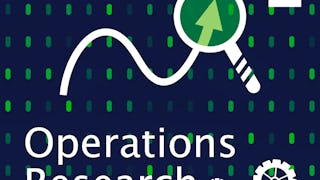- Browse
- Accounting And Bookkeeping
Results for "accounting and bookkeeping"
 Status: Free TrialFree TrialB
Status: Free TrialFree TrialBBoard Infinity
Skills you'll gain: Talent Acquisition, Leadership Development, Diversity Equity and Inclusion Initiatives, HR Tech, Human Resource Strategy, Workplace inclusivity, Recruitment, Strategic Leadership, Human Resources Information System (HRIS), Cultural Diversity, Organizational Effectiveness, Team Building, Decision Making, Employee Onboarding, Innovation, Change Management
4·Rating, 4 out of 5 stars29 reviewsIntermediate · Course · 1 - 4 Weeks
 Status: Free TrialFree TrialU
Status: Free TrialFree TrialUUniversity of Colorado System
Skills you'll gain: Data Warehousing, SQL, Data Governance, Data Integration, Data Management, Business Intelligence, Oracle Databases, Analytics, PostgreSQL, Data Mining, Big Data, Relational Databases, Database Management Systems, Data Architecture
4.6·Rating, 4.6 out of 5 stars592 reviewsMixed · Course · 1 - 3 Months
 Status: Free TrialFree TrialN
Status: Free TrialFree TrialNNational Taiwan University
Skills you'll gain: Operations Research, Linear Algebra, Numerical Analysis, Applied Mathematics, Algorithms, Process Optimization, Engineering Calculations, Program Implementation, Computational Thinking, Operational Analysis, Mathematical Modeling, Resource Allocation, Decision Making, Facility Management, Calculus, Business Analytics
4.9·Rating, 4.9 out of 5 stars158 reviewsIntermediate · Course · 1 - 3 Months
 Status: PreviewPreviewY
Status: PreviewPreviewYYale University
Skills you'll gain: Environmental Issue, Environment, Sustainable Development, Systems Thinking, Climate Change Programs, Culture, Liberal Arts, Cultural Diversity, Storytelling, Life Sciences, Science and Research
Mixed · Course · 1 - 3 Months
 Status: Free TrialFree Trial
Status: Free TrialFree TrialSkills you'll gain: Data Management, Data Collection, Data Governance, Data Analysis, Information Privacy, Data Quality, Data Storage, Data Security, Data-Driven Decision-Making, Data Architecture, Data Visualization Software, Big Data, Machine Learning
4.8·Rating, 4.8 out of 5 stars115 reviewsBeginner · Course · 1 - 4 Weeks
 Status: Free TrialFree TrialU
Status: Free TrialFree TrialUUniversity of Minnesota
Skills you'll gain: Clinical Leadership, Nursing Administration, Nursing Management, Leadership, Nursing, Health Informatics, Informatics, Health Care, Innovation, General Networking
4.8·Rating, 4.8 out of 5 stars203 reviewsBeginner · Course · 1 - 3 Months
 Status: NewNewStatus: Free TrialFree TrialM
Status: NewNewStatus: Free TrialFree TrialMMacquarie University
Skills you'll gain: AI Security, Responsible AI, Information Privacy, Personally Identifiable Information, Data Security, Anomaly Detection, Threat Modeling, Vulnerability Assessments, Cyber Security Strategy, Cyber Threat Hunting, Cybersecurity, Cyber Risk, Security Strategy, Cyber Governance, Security Awareness, Artificial Intelligence and Machine Learning (AI/ML), Security Management, Security Software, AI Product Strategy, Generative AI
4.5·Rating, 4.5 out of 5 stars20 reviewsBeginner · Specialization · 3 - 6 Months
 Status: PreviewPreviewU
Status: PreviewPreviewUUniversity of Pennsylvania
Skills you'll gain: Environmental Issue, Food Safety and Sanitation, Nutrition and Diet, Manufacturing and Production, Production Process, Environment, Sustainability Standards, Sustainable Development, Pollution Prevention, Trend Analysis, Infectious Diseases, Public Health, Economics
4.7·Rating, 4.7 out of 5 stars256 reviewsBeginner · Course · 1 - 3 Months
 Status: Free TrialFree TrialG
Status: Free TrialFree TrialGGoogle Cloud
Skills you'll gain: Google Workspace, Collaborative Software, Collaboration, Productivity Software, Business Communication, Communication, Spreadsheet Software, Project Management, File Management
4.6·Rating, 4.6 out of 5 stars60 reviewsBeginner · Course · 1 - 3 Months
 Status: Free TrialFree Trial
Status: Free TrialFree TrialSkills you'll gain: DevOps, CI/CD, Cloud Deployment, User Story, Microservices, OpenShift, Application Deployment, Continuous Integration, Cloud-Native Computing, Code Review, Kubernetes, Test Driven Development (TDD), Scrum (Software Development), Agile Methodology, Sprint Planning, Containerization, Restful API, Flask (Web Framework), Docker (Software), Cloud Computing
4.8·Rating, 4.8 out of 5 stars168 reviewsIntermediate · Course · 1 - 3 Months
 Status: Free TrialFree Trial
Status: Free TrialFree TrialSkills you'll gain: Back-End Web Development, Django (Web Framework), Git (Version Control System), Full-Stack Web Development, API Testing, Server Side, API Design, Application Development, Restful API, Unit Testing, MySQL, User Accounts, Web Applications, Databases
4.6·Rating, 4.6 out of 5 stars175 reviewsIntermediate · Course · 1 - 4 Weeks
 Status: Free TrialFree TrialD
Status: Free TrialFree TrialDDuke University
Skills you'll gain: Cloud-Native Computing, Software Engineering, Distributed Computing, Cloud Storage, Extract, Transform, Load, Google Cloud Platform, Big Data, Cloud Computing, Serverless Computing, Cloud Technologies, Data Lakes, Data Pipelines, Amazon Web Services, Command-Line Interface, Python Programming, Data Governance, NumPy, Rust (Programming Language)
4.1·Rating, 4.1 out of 5 stars92 reviewsIntermediate · Course · 1 - 4 Weeks
In summary, here are 10 of our most popular accounting and bookkeeping courses
- Advanced HR Leadership & Strategy for SHRM Exams Prep: Board Infinity
- Relational Database Support for Data Warehouses: University of Colorado System
- Operations Research (2): Optimization Algorithms: National Taiwan University
- Thomas Berry的世界观:地球社区的繁荣 (The Worldview of Thomas Berry: The Flourishing of the Earth Community): Yale University
- Introduction to Data Management: Meta
- Skills for Nursing Informatics Leaders: University of Minnesota
- Cyber Security: Essentials for AI: Macquarie University
- Feeding the World: University of Pennsylvania
- Google Chat: Google Cloud
- DevOps Capstone Project: IBM










